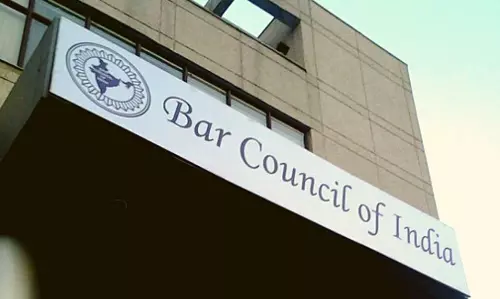
The Muslim Women Rights Bill framed in haste
text_fieldsThe central government is set to bring in a legislation providing for rigorous punishment for triple talaq, a practice of divorcing Muslim women by uttering the word ‘talaq’ thrice, seeing it as a criminal offence.
But doing that without facilitating even the essential amount of debate in that direction is not a good democratic precedent. The purpose of sending the draft bill, which makes triple talaq illegal and a non-bailable offence, for the consent of the states is to pass the Bill in the winter session of the Parliament which will be commencing on the 15th of this month. The Uttar Pradesh government has already given its consent to the draft bill as soon as it received it.
Reports say that the Yogi Adityanath government has given its green light for the new legislation unilaterally without holding discussions at any level or facilitating conversations with the community concerned. According to the law likely to be called the ‘Muslim Women (Protection of Rights on Marriage) Act’, there will be provisions including a punishment of three years imprisonment and a fine for those who obtain a divorce by means of triple talaq orally, by email, SMS or in any other form. There are also provisions in the law for the woman who have been given instant triple talaq and her minor children to move the court seeking maintenance allowance. The latest move by the Modi government comes as a continuation of the verdict delivered by a five-member bench of the Supreme Court on August 22.
The committee that includes senior union Ministers is all set to draft a new act by misinterpreting the triple talaq verdict by the Supreme Court. Although the five judges on the Constitution bench are of the unanimous view that the practice of triple talaq should not be continued, they had cited diverse and contradictory reasons for the same. . It was only the then Chief Justice J S Khehar and Justice S Abdul Nazeer, who argued that triple talaq had the status of fundamental right under the Constitution, invoked framing a new law. However, not only was such a recommendation put forth in the majority verdict, Justice Kurien Joseph even said that the judiciary had no right to do so. It was also emphasized that when a dispute arises between religions and the Constitution, the best solution is to make legislation by considering both the sides. The judiciary recalled the need to follow the practice of talaq as envisaged in the Quran by upholding the philosophy that what is sinful in religion cannot be valid under law, and because the practice of triple talaq is against the concept of equality envisioned in the Constitution.
With the nullification of muttalaq, it becomes a law for the whole country declared by the Supreme Court as provided for in Art 141 of the Constitution. If any one declares talaq thrice in one go, it will be treated only as a single talaq. When the court treats marriage as a social contract, for that very reason it would be illogical for a criminal offence kicking in there. And because it will be a crime attracting three years’ imprisonment, it will open the possibility of the husband leaving the wife of the broken marriage alone in the lurch, but without a proper divorce, which may make the woman’s life all the more miserable. The wife does not stand to gain anything by sending the husband to jail. And she may not be able to prove in the court a talaq delivered orally. As for maintenance, there are aleady elaborate provisions for the divorced wife to demand maintenance in the Muslim Women (Protection fo Rights on Divorce) Act of 1986. As such, there is no imperative for fresh legislation to meet that end. And for the maintenance of minor children after divorce too, the existing laws are more than sufficient.
No one is likely to view the excessive zeal of the Modi government on the issue of protection of rights of Muslim women, as emanating from a sincere sympathy for a community suffering from social tribulations. It is as clear as daylight that the worst victims of the bellicosity of the Sangh Parivar are the women of the minority community. Therefore, this proposed legislation is to be seen as yet another instrument of communal polarization for the Hindutva politics in its march with divisive strategy held close to its chest as its main agenda. Therefore, all secular forces hope that when it comes to the state government decision on the bill, it will be taken only after considering all the related aspects.























